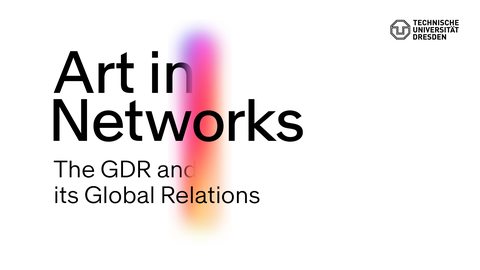Art in Networks: The GDR and its Global Relations (1949-1990)
Table of contents
The junior research group “Art in Networks” is funded by the European Social Fund (ESF) as part of the EU’s response to the Covid-19 pandemic.
The website developed as part of the project can be accessed via the following Link: https://artinnetworks.webspace.tu-dresden.de/en
Brief Description
Art created in the German Democratic Republic (GDR) has been the subject of controversial debate since the 1990s. Its place in (art) history and its societal relevance is still discussed by academics and in exhibitions to this day. Prominent examples of the struggle for remembrance include the “deutsch-deutscher Bilderstreit” (the German picture quarrel) as well as the disputes over the historical significance of East German Modernism. In this context, the production of art in the GDR is often presented as provincial and insular. The GDR’s international relations are often presented as centered around the Eastern Bloc. What not many people know is that the GDR’s network of contacts and international relations for fine arts and architecture spanned the globe. These contacts resulted in exhibition collaborations, opportunities for artists to travel or student exchange trips.
With this in mind, a broad transcultural perspective is indispensable for examining artistic production in the GDR in order to fundamentally shift the classification of GDR art history as an “art history of contact” (Kravagna 2013). This illuminates unknown freedoms and contact restrictions beyond Eurocentric narratives. It lends particular attention to the stories and perspectives of individuals from the Global South. The diversity of voices and memories should allow space for intersectional perspectives as well as contradictory narratives. The REACT research group “Art in Networks – The GDR and its Global Relations” seeks to shed light on these unknown perspectives and share these with the public in an online research portal. The research group’s project is funded by ESF and will be hosted by the Chair of Visual Culture Studies in a Global Context from February to December 2022.
Art in Networks seeks to reveal the connections established by artists, architects, museums and other cultural figures between the GDR and countries in Africa, Asia and Latin America, and to trace the international networks that emerged as a result. The research will focus on exemplary individual cases to examine where and how forms of private and institutional artistic dialogue took shape. The project will explore the potential of oral art history as a method for linking the memories of witnesses to the time period to objects such as artworks, artifacts and other sources in video interviews. The contemporaneous and personal nature of the interviewees’ perspectives on past encounters, experiences and events make the affective and emotional aspects of these narratives from art history tangible.
The Art in Networks online platform will be supplemented by contributions from experts who offer interdisciplinary and international perspectives on the subject. Researchers, archivists and curators give interviews exploring research methods, exhibition and collection practices as well as individual objects. To what extent did cultural-political relations materialize? Where were the boundaries of interaction in the political arena? How were these overcome in the private sphere? Where can we find traces of these contacts today?
At the same time, a digital fellowship program has been set up, inviting international researchers and artists to conduct their own (artistic) research on the platform and produce a video on their findings.
The platform will structure the contributions in timelines extending beyond the linear development of the GDR’s international relations in the field of art to reveal the ongoing emergence of networks up to the present day.
The thematic focus areas will arise from the individual research interests of the REACT team members as well as the prompts from experts, fellows and other cooperation partners. An external scientific Advisory Board will provide discerning guidance on the platform’s content and conceptual orientation.
Art in Networks does not see itself as a closed research project. On the contrary, it attempts to create a dynamic digital space for academic discussion, accessible to a broad audience. It will present a historical and contemporary artistic analysis of “the global GDR.” The new platform will also be embedded in an existing field of research. The project does not purport to be exhaustive. The ever-growing platform should also serve as a resource for further research or art projects and is open to supplementary contributions.
Project term
Period: February 1 until December 31, 2022
Our cooperation partners
Staatliche Kunstsammlungen Dresden (Dresden State Art Collections); Brandenburgisches Landesmuseum für moderne Kunst (Brandenburg State Museum for Modern Art), Cottbus/Frankfurt (Oder); The Office for Academic Heritage, Scientific and Art Collections of Technische Universität Dresden
Contact
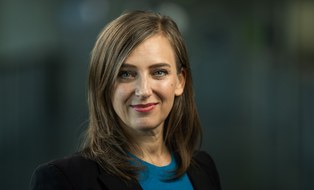 © Sven Ellger/TUD
© Sven Ellger/TUD
Chair of Visual studies and art history
NameProf. Dr. Kerstin Schankweiler
Send encrypted email via the SecureMail portal (for TUD external users only).
Institut für Kunst- und Musikwissenschaft
Institut für Kunst- und Musikwissenschaft
Visiting address:
Haus 83/Institut für Kunst- und Musikwissenschaft, Raum 115 (rechts) August-Bebel-Straße 20
01219 Dresden
Office hours:
- Wednesday:
- 14:00 - 15:00
Vorherige Anmeldung per E-Mail im Sekretariat bei Frau Gross (isabelle_nadia.gross@tu-dresden.de) erfoderlich. Im Dezember sind keine freie Termine mehr verfügbar. Die nächsten Sprechstunden werden ab dem 7.01.26 stattfinden.
 © Kontrastfoto, Berlin
© Kontrastfoto, Berlin
wissenschaftliche Mitarbeiterin
NameElke Neumann (promoviert)
REACT-Forschungsgruppe „Art in Networks"
Send encrypted email via the SecureMail portal (for TUD external users only).
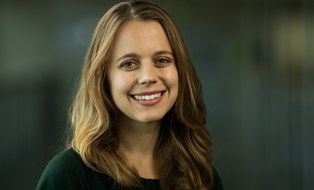 © Sven Ellger/TUD
© Sven Ellger/TUD
research assistant
NameNora Kaschuba M.A.
Research Project "Affective Archives"
Send encrypted email via the SecureMail portal (for TUD external users only).
 © Pauline Hohn
© Pauline Hohn
wissenschaftliche Mitarbeiterin
NamePauline Hohn M.A.
REACT-Forschungsgruppe „Art in Networks"
Send encrypted email via the SecureMail portal (for TUD external users only).
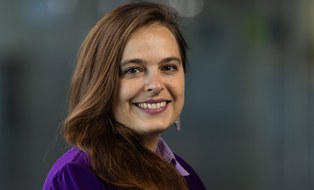 © Sven Ellger/TUD
© Sven Ellger/TUD
research assistant
NameJule Lagoda M.A.
Research Project "Affective Archives"
Send encrypted email via the SecureMail portal (for TUD external users only).
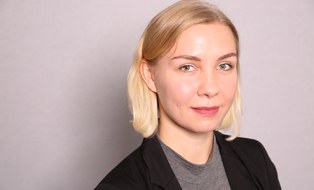 © Anja Degner
© Anja Degner
wissenschaftliche Hilfskraft
NameAnja Degner M.A.
REACT-Forschungsgruppe „Art in Networks"
Send encrypted email via the SecureMail portal (for TUD external users only).
 © Janine Kläffling
© Janine Kläffling
studentische Hilfskraft
NameJanine Kläffling
REACT-Forschungsgruppe „Art in Networks"
Send encrypted email via the SecureMail portal (for TUD external users only).
studentische Hilfskraft
NameLaura-Maria Schulze B.A.
REACT-Forschungsgruppe „Art in Networks"
Send encrypted email via the SecureMail portal (for TUD external users only).

